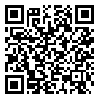Volume 6, Issue 2 (10-2021)
cjhaa 2021, 6(2): 42-56 |
Back to browse issues page
Download citation:
BibTeX | RIS | EndNote | Medlars | ProCite | Reference Manager | RefWorks
Send citation to:



BibTeX | RIS | EndNote | Medlars | ProCite | Reference Manager | RefWorks
Send citation to:
Emadi S, hemati farsani Z. A review of changes in each component of the innate and acquired immune system during old age and the effect of sports activities on the immune system. cjhaa 2021; 6 (2) :42-56
URL: http://cjhaa.mubabol.ac.ir/article-1-160-en.html
URL: http://cjhaa.mubabol.ac.ir/article-1-160-en.html
Ardakan University, Ardakan, Iran
Abstract: (4952 Views)
Background and Objective: The immune etiology is complex and it can affect both arms of the immune system and lead to poor vaccination response, increased infection rate and malignancy in the elderly. Regular exercise activity has been associated with increased immune function and it may be useful as a simple lifestyle intervention to counteract the damaging effects of the immune system. Therefore, the aim of this study was to investigate the physiological effects of exercise on changes in each component of the innate and acquired immune system during old age.
Methods: In the present study, by examining the databases of Pupmed, SID, Google Scholar, Springer, studies related to the effect of exercise on the immune system of the elderly were selected. The contents of the articles were summarized and reported.
Findings: Some of the positive effects of exercise on the elderly included increased response to vaccination, decreased circulatory inflammatory mediators, increased phagocytic activity of neutrophils, less inflammatory responses to bacteria, decreased aging old T cells, increased T cell proliferation, reduced number of circulating monocytes, increased function of Tregs, increased number of anti-inflammatory Tregs and increased telomere length of leukocytes.
Conclusion: Taken together, these findings suggested that exercise regulated the immune system and may delay the onset of immunosenescence. Moreover, exercise-training studies on "unhealthy" individuals such as cancer survivors as well as obese and HIV-positive people reported the positive effects of exercise on healthy. Therefore, exercise may help reduce immunosenescence in people who are at risk.
Methods: In the present study, by examining the databases of Pupmed, SID, Google Scholar, Springer, studies related to the effect of exercise on the immune system of the elderly were selected. The contents of the articles were summarized and reported.
Findings: Some of the positive effects of exercise on the elderly included increased response to vaccination, decreased circulatory inflammatory mediators, increased phagocytic activity of neutrophils, less inflammatory responses to bacteria, decreased aging old T cells, increased T cell proliferation, reduced number of circulating monocytes, increased function of Tregs, increased number of anti-inflammatory Tregs and increased telomere length of leukocytes.
Conclusion: Taken together, these findings suggested that exercise regulated the immune system and may delay the onset of immunosenescence. Moreover, exercise-training studies on "unhealthy" individuals such as cancer survivors as well as obese and HIV-positive people reported the positive effects of exercise on healthy. Therefore, exercise may help reduce immunosenescence in people who are at risk.
Type of Study: case report |
Subject:
Special
Received: 2021/11/21 | Accepted: 2022/01/3 | Published: 2022/01/23
Received: 2021/11/21 | Accepted: 2022/01/3 | Published: 2022/01/23
Send email to the article author
| Rights and permissions | |
 |
This work is licensed under a Creative Commons Attribution-NonCommercial 4.0 International License. |







